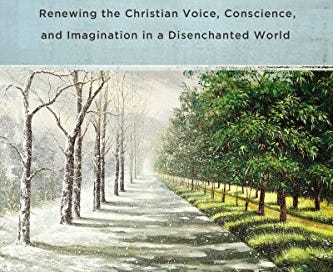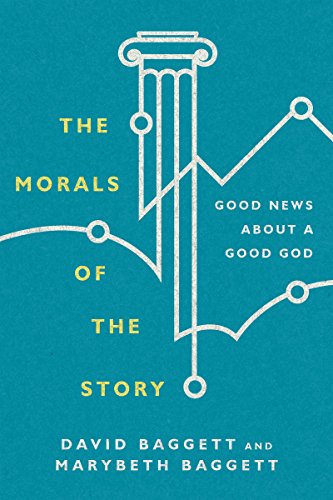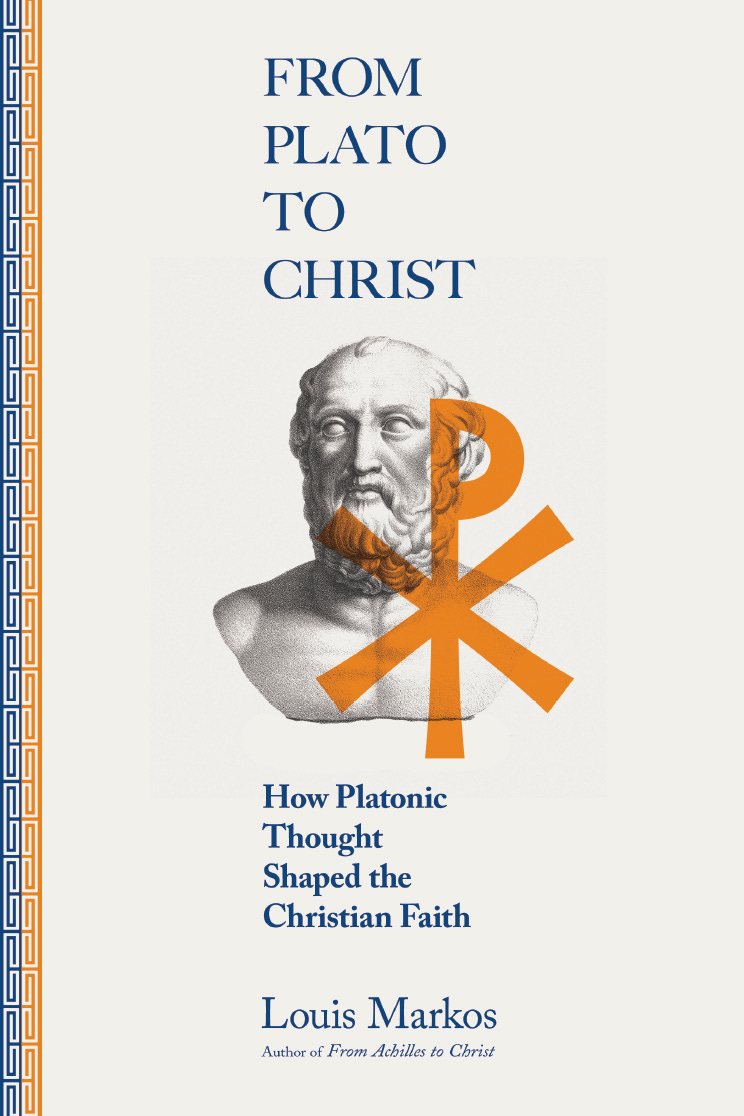In part 2 of our current Roundtable, David Baggett and Paul Gould choose an insight from each other’s books to comment on and in the process shed helpful light on both moral and cultural apologetics.
Blessings,
Christopher Reese
Editor-in-Chief
Paul Gould’s Cultural Apologetics
By David Baggett
My dear friend and Worldview Bulletin colleague Paul Gould wrote a book a few years ago called Cultural Apologetics: Renewing the Christian Voice, Conscience, and Imagination in a Disenchanted World. We thought we would have fun in this month’s roundtable and discuss a few of our favorite lines from one another’s books, and this is the book I’ll be considering. It’s a book I’m well familiar with, having written a blurb for it back when, which went like this:
Reading this book is a pure joy. A breath of fresh air, Cultural Apologetics is one of the best books I’ve read in years. Paul Gould was meant to write it. His ideas having marinated, his prodigious teaching skills honed, his reading wide and deep, he was able to write with the fertile mind of a philosopher, capacious heart of a poet, vivid imagination of an artist, and the nimble hands of a passionate practitioner. This is essential reading for every actual or budding apologist; in fact, the book deserves a very wide readership among believers and skeptics alike. It is not a book to be read quickly, but digested and savored. Read, relish, and reread it; use it in class; give it away as a gift. Culturally informed and sensitive, embodying what it extolls, eclectic in numerous respects, and punctuated with clever and telling illustrations—both verbal and visual—this remarkable book makes a powerful case for an expansive apologetic faithful to a true anthropology. It’s just the corrective to reawaken the imagination of a disenchanted age. Every page crackles with insight and erudition. At moments it’s veritably sublime and enchanting and as inspiring, persuasive, and moving as it is eminently practical. I simply can’t recommend it enough.
There are ever so many lines I might accentuate from this book, and at different times, in different moods, I’m liable to pick others, but the ones I want to quote today pertain to moral objectivity. In one of his chapters, Gould tips his hat at several positive arguments for an objective moral law, an issue of increasing relevance today as the ranks of moral skeptics gradually grow: “For example, we can point to the reality of moral progress (the fact human civilizations can and have made moral progress suggests we can and have approached an objective moral ideal), the existence of deliberately indispensable moral norms (when we deliberate on what we should do, we seem to be seeking an objective moral reason for action, not simply expressing our preferences), and the fact that moral objectivism allows for the ascription of unqualified evil to actions, such as the Holocaust, sex trafficking, and genocide” (emphasis added).[1]
So Gould cites moral progress, deliberative indispensability, and the ascription of unqualified evil to certain actions as evidence for moral realism. A word on each. Moral relativism, it occurs, is a telling example of a view that leaves little to no room for moral improvement. Suppose a society’s dominant ethical views are correct—exactly in virtue of being the dominant views, as the ethical relativist would have it. Then consider, say, slavery in American history. Needless to say, it is obvious that leaving slavery behind was a morally good thing, and an appreciable moral improvement in the history of our country. Yet, on a relativistic view, slavery was morally right when it was widely accepted, and rejecting it was right when it came to be widely rejected. The society was right all along; there was no moral improvement.
Another challenge to moral objectivity can come from the realm of postmodernism, which can mean lots of different things, but one oft-cited salient feature is a denial of moral objectivity, which brings to mind a story. In our last year in Virginia, Marybeth and I took in a social event held on the grounds of Poplar Forest, which had been Thomas Jefferson’s summer home. When I first moved into that area, I had heard that Jefferson had had a vacation home in the area, and sometimes I’d drive around, look at a house, and think, “I wonder if that was it?” Since the house in question was likely built after I was born, not bloody likely. After a few years, when I was finally introduced to Poplar Forest, and the fabled house at long last came into resplendent view—an exact replica of Monticello, only smaller—my first rather sheepish thought was, “Aaand that would be it.”
Well, the famous grounds and house were just a matter of minutes from where we lived, it turned out, and, after finding it, we often liked to visit the place, doing tours, seeing plays, and on this occasion attending a public panel discussion one evening on the topic of respectful civil discourse. The event was sure to make me feel distinctly cultured, I was confident. I got comfortable in my seat and prepared for a substantive, engaging, and insightful exchange of ideas. There were several folks on the panel, all of them eminently well-spoken, including an art historian from a well-known public state university.
In the course of her talk, she denied that anything is objectively right or wrong, morally speaking, but instead insisted that everything is but an exertion or exercise of power, a view that strained my credulity. In the interactive session afterwards, I brought up American chattel slavery as an example of something morally wrong, figuring surely as an African American she’d agree. But her response was, “Wrong for whom?” That was an epiphanous evening.
Regarding the notion of deliberative indispensability, Angus Ritchie, following David Enoch, writes, “It is pretty implausible to claim that the only thing I ever do when reflecting on my desires is to discern my own all-things-considered desire. My deliberation also involves considering whether my desires are excessively self-centred [sic] or shallow, and how they ought to be weighed against the desires and needs of others. It looks as if I am trying to get something right, and trying to revise my desires in the light of the fact of the matter about what is or is not right.”[2]
And with respect to ascriptions of evil to certain moral actions, Gould’s book here brings to mind the Worldview Bulletin’s articles a few months back by Melissa Cain Travis (Part 1, Part 2). Canvassing sociologist Peter Berger’s book A Rumor of Angels, she discussed the concept of signals of transcendence. Berger defines these signals as phenomena that are to be found within the domain of our natural reality but that appear to point beyond that reality. According to Berger, one powerful signal of transcendence is our immediate and profound reaction to a moral atrocity. Our visceral reactions to the horror of certain moral wrongdoings likely provide compelling clues about the nature of reality, but for now the point is simply that such reactions give us good reasons, if we are rigorously honest, to take moral objectivity seriously.
Paul Gould is a wonderful philosopher, but his book is not just for philosophers. It is chock-full of uncommon common sense, and makes for a powerful read. It came as no surprise when the book won the Award of Merit in the 2020 Christianity Today book awards. The book features a veritable plethora of virtues, but as this one passage illustrates, echoing the likes of the great Scottish philosopher Thomas Reid, good philosophy, far from requiring that we check our moral common sense or deepest human longings at the door, invites them in and offers them an honored seat at the table, so that together we can cultivate close attentiveness to such evidence and follow it where it leads.
Notes
[1] Paul Gould, Cultural Apologetics: Renewing the Christian Voice, Conscience, and Imagination in a Disenchanted World (Grand Rapids, MI: 2019), 158.
[2] Angus Ritchie, From Morality to Metaphysics (Oxford: Oxford University Press, 2012), 25.
— David Baggett is Professor of Philosophy and Director of the Center for the Foundations of Ethics at Houston Baptist University. He is the author or editor of about fifteen books, most recently The Moral Argument: A History written with Jerry Walls.
David and Marybeth Baggett’s The Morals of the Story
By Paul M. Gould
David Baggett and I like to have a little fun. And we thought we’d invite you into our fun by having a little mini-symposium on each other’s work for this month’s Worldview Bulletin Roundtable discussion. With brevity and some merriment, I’m going to answer the question: What is your favorite line from Baggett and Baggett’s (hereafter, B&B’s) book The Morals of the Story?[1] David has returned the favor above with my book Cultural Apologetics. This is an easy one for me. It’s the first four sentences, actually, of the book. From there it goes downhill, and downhill fast. But the opening shots were brilliant. Let’s take a look:
This book isn’t for everyone. Dead people, for example. But it’s for everyone else. Except Zombies.
I remember first reading these sentences and laughing out loud. Quite a feat—and a welcome beginning—for a work on moral philosophy! “Now here are some authors who can write,” I thought to myself. That part I said earlier about it all going downhill from there—that’s not actually true. Just the opposite. This is a wonderful book exploring the rich and layered issues of morality and the moral life. In fact, the book is so good that it won the Christianity Today 2019 Award of Merit in the category of evangelism and apologetics.
In reading B&B’s The Morals of the Story, I’m reminded of the fact that we live in a moral universe where there is goodness to be sure, but also the genuine prospect (and reality) of moral failure and evil. I’m moved to consider my own moral condition and my need for a Savior who makes me whole and forgives me for my sin. And I’m reminded that we are fantastic kinds of beings created by a good God for flourishing: we are moral creatures with a sense of right and wrong, good and evil, virtue and vice, and more.
So, back to the opening sentences of the book. It’s true that this book isn’t for everyone. Dead people and Zombies won’t find much good in it. But for the rest of us—those of us who still enjoy the good gift of life and agency and beauty and struggle and strife and longing and more, for us, we’d all benefit from reading this book. Since you’re reading this WVB roundtable, I’m going to assume you’re neither dead nor a zombie. So, I guess that means you need to go and pick up B&B’s book and get to work. You’ll not be disappointed—and you’ll grow in your appreciation of the good and beautiful gospel story!
Notes
[1] David Baggett and Marybeth Baggett, The Morals of the Story: Good News About a Good God (Downers Grove, IL: Intervarsity Press, 2018).
— Paul M. Gould is an Associate Professor of Philosophy of Religion and Director of the M.A. Philosophy of Religion program at Palm Beach Atlantic University. He is the author or editor of ten scholarly and popular-level books including Cultural Apologetics, Philosophy: A Christian Introduction and The Story of the Cosmos. He has been a visiting scholar at Trinity Evangelical Divinity School’s Henry Center, working on the intersection of science and faith, and is the founder and president of the Two Tasks Institute. You can find out more about Dr. Gould and his work at Paul Gould.com and the Two Tasks Institute. He is married to Ethel and has four children.
From Plato to Christ
How Platonic Thought Shaped the Christian Faith
What does Plato have to do with the Christian faith?
Quite a bit, it turns out. In ways that might surprise us, Christians throughout the history of the church and even today have inherited aspects of the ancient Greek philosophy of Plato, who was both Socrates's student and Aristotle's teacher.
To help us understand the influence of Platonic thought on the Christian faith, Louis Markos offers careful readings of some of Plato's best-known texts and then traces the ways that his work shaped the faith of some of Christianity's most beloved theologians, including Gregory of Nyssa, Augustine, Dante, and C. S. Lewis.
With Markos's guidance, readers can ascend to a true understanding of Plato's influence on the faith.
Read our recent excerpt from From Plato to Christ, “What Plato Got Right and Wrong.”
“This is an urgently needed book. That educated persons too often have no knowledge of Plato is a real disaster. With his usual flair and concision, Markos brings forward Plato's greatest insights and describes their reception in the Christian tradition, as well as their rejection by Hobbes and Nietzsche. May the Christian retrieval of the best of Plato—joined by his student Aristotle—commence in earnest!”
— Matthew Levering, James N. and Mary D. Perry Jr. Chair of Theology, Mundelein Seminary
Find From Plato to Christ at Amazon, InterVarsity Press, and other major booksellers.
*Sponsored post
Advertise in The Worldview Bulletin
Advertising in The Worldview Bulletin is an effective way to promote your product or service to thousands of readers who share your commitment to the Christian worldview. Visit here to learn more.
A Master Class in the Christian Worldview
Would you like to grow in your knowledge of the Christian worldview and your ability to defend it? Subscribe to The Worldview Bulletin for only $5 per month or $30 per year and learn from world-class Christian scholars and apologists. You’ll receive our free weekly email as well as our subscriber-only monthly newsletter, and gain access to our full archive of scores of past articles. You’ll also enable us to continue producing these resources for a global audience.
To give a gift subscription that a friend, family member, or student will benefit from the whole year, visit here.
Be equipped, informed, and encouraged!
“The Worldview Bulletin is a must-have resource for everyone who’s committed to spreading and defending the faith. It’s timely, always relevant, frequently eye-opening, and it never fails to encourage, inspire, and equip.”
— Lee Strobel, New York Times bestselling author of more than forty books and founding director of the Lee Strobel Center for Evangelism and Applied Apologetics
“Staffed by a very respected and biblically faithful group of Evangelical scholars, The Worldview Bulletin provides all of us with timely, relevant, and Christian-worldview analysis of, and response to, the tough issues of our day. I love these folks and thank God for their work in this effort.”
— JP Moreland, distinguished professor of philosophy, Talbot School of Theology, Biola University, author of Scientism and Secularism: Learning to Respond to a Dangerous Ideology (Crossway)
“I find The Worldview Bulletin very stimulating and would encourage all thinking Christians to read it.”
— John Lennox, emeritus professor of mathematics, University of Oxford, emeritus fellow in mathematics and philosophy of science, Green Templeton College, author of Cosmic Chemistry: Do God and Science Mix? (Lion Books).





